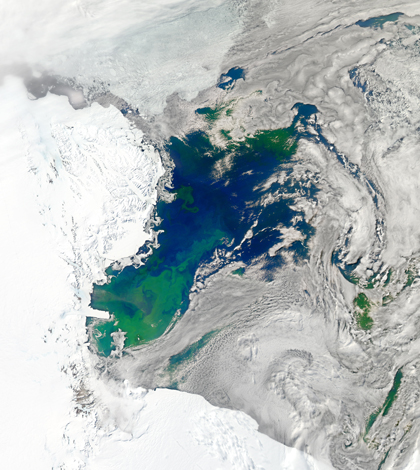More precipitation near the Antarctic affects ocean mixing

Ross Sea (Credit: NASA)
More precipitation over the Southern Ocean is affecting ocean mixing around the Antarctic, according to a study published in Nature Climate Change. With more precipitation, authors say, the coldest and deepest ocean water that once flowed around the continent has disappeared.
Mixing in the past relied on dense, cooler waters that would decrease in temperature in the Weddell and Ross Seas. At that point, they would sink to the bottom and begin an oceanic circulation that lasted 1,000 years or more.
But increased precipitation near the Southern Ocean has made the surface waters less dense, disrupting the natural mixing process. So instead of replenishing Antarctic bottom water, the waters on top don’t cool enough to sink.
Image: Ross Sea (Credit: NASA Goddard Space Flight Center)





0 comments